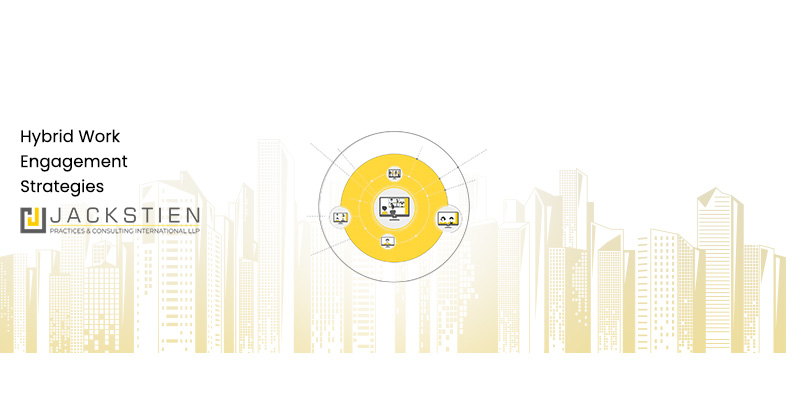In mythological cosmology and literature, the idea of the seven heavens has made a frequent appearance. Some believe that the concept was derived from ancient Mesopotamian religions. Primarily, these seven levels of heaven depict stages of contentment, with the last and seventh heaven representing ultimate bliss.
In the last two years, work has seen a significant shift. The pandemic made people evaluate their priorities and expand their perspectives on life, effort, compensation, and growth. A direct result of the same is that work and workplaces have now become more people-oriented than ever. Hybrid work, given its benefits for employers and employees commonly has seen its dawn.
Much has been said about how psychologically unsafe workplaces spell doom in a company and what employers need to think about.
And what about workers and employees? What part do they have to play in today’s work setup?
As remote and hybrid work, flexibility, and freedom take over, following an ideal and being passionate about your work and career advancement is still a significant individual responsibility for people.
How then can employees make the best of their careers and achieve corporate heaven from the employer and the PTB? (PTB stands for the Powers That Be – those that have an outsize impact on your personal, emotional and financial well-being, be it your supervisor, the HoD, the CEO, the Board, the culture carriers or Human Resources.)
There are, of course, stages that lead to the seventh heaven. But each level is an accomplishment in itself and only makes way for something better, and more blissful.
First
Believe In Yourself: When an employee has a healthy self-image and believes in himself, many roadblocks at work get cleared. Self-belief in his or her own abilities often helps take on challenges and tasks that are demanding. Where this helps especially is in understanding that one doesn’t know everything and doesn’t need to know everything while starting but can and will learn it all. This confidence is key to start off and, in this stage, work begins to look more stimulating than before.
Sitting around trying to hide what you don’t know in fear of being called out is a recipe for disaster.
Second
Be Consistent: Growth requires consistency, and people who persevere with their work and the effort they put into it make them a more viable fit for advancement opportunities at their company by the PTB. A steady pattern of disciplined work is highly rewarding.
Occasional flashes in a pan get you quick credit but only to a point.
Third
Take Initiative and be a ‘Self-Starter’: Initiative at work is something that is often not a clear expectation but subtly, it works wonders. When an employee takes the lead, gets things done, comes up with new ideas and has an authentic enthusiasm toward organization goals, they automatically become recognized as an asset by the PTB. Here, bliss comes to the employee in the form of boosting well-founded confidence.
Without initiative, one is just passive and reactive. Like with life, expect work to give you only as much as you put in.
Fourth
Learn: The fourth stage gives an employee the happiness of learning and gaining. When people make space for things beyond their current role and display a genuine willingness to learn new things, their career growth gains speed. In addition, developing and honing new skills for a higher position makes work something to look forward to and helps employees remain proactive.
Stay with what you know and you will inhibit your growth internally and in the organization. It is essential to look back at yourself a few years ago and feel two things (1) foolish at how little you knew then and (2) proud of your ability to recognize that fact.
Fifth
Be Accountable: When someone is deemed reliable and accountable at their workplace, they’ve earned something vital – the trust of the team lead, supervisor and management. When the PTB place faith in an employee, they are relieved from the shackles of micromanaging. In the fifth stage, these employees experience freedom and independence. One of the biggest problems for supervisors is the lack of accountability and follow-through. Don’t be that employee.
Always blaming something or someone else or not following something through to closure ensures that micro-managers are never out of your hair. Remember, their fortunes are tied to yours.
Sixth
Deal with Conflict: Disagreements at work are inevitable. The way one resolves an argument often acts as a display of character. When an employee has an exceptional conflict resolution style, the company knows they are in for the long haul. Maturity lies in the balance and also shows one values the place where they work and want to be a part of it. This wins sincere appreciation for the employee from the PTB with the possibilities of career advancement growing.
Passive avoidance shows immaturity. So does active aggression. If you invest in what is difficult, it shows commitment.
Seventh
The Big Picture from the Seventh Step: The final and ultimate corporate bliss is experienced by employees who have over time, shown a clear picture of commitment, discipline, sincerity and follow-through to everyone including the PTB and received the recognition that goes with it. In the seventh heaven, they become employees that are so valued by the company that the PTB are willing to go the extra mile to provide them with everything they need to expand and grow their career graph. This is where work becomes more than just work and becomes something of meaning over and above just a means of livelihood.
- Authored by the People Practices Team at Jackstien Practices


